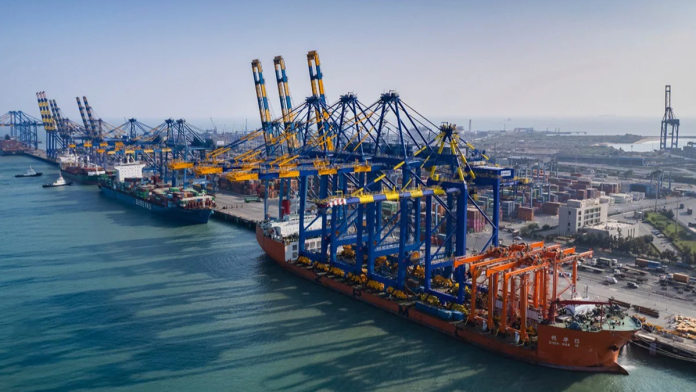A sanctioned tanker carrying Russian crude oil has discharged its cargo at India’s Mundra port, according to recent shipping data. This comes despite the Adani Group, which manages the port, recently banning blacklisted ships from entering its terminals. The incident has raised concerns internationally because the tanker is prohibited under sanctions imposed by the European Union and Britain.
Sanctioned Tanker Spartan Arrives at Mundra
The tanker, named Spartan, formerly known as SCF Samatlor, delivered 1 million barrels of Urals crude oil at the HMEL (HPCL-Mittal Energy Ltd.) terminal in Mundra. Urals crude is a type of oil from Russia that is heavier and contains more sulfur than other oils, and is used by refineries to make fuels like petrol and diesel. Spartan is managed by Nova Shipmanagement, a Dubai-based company, and owned by Citrine Marine.
The European Union and Britain had blacklisted Spartan for transporting Russian oil despite international sanctions. The sanctions aim to reduce Russia’s ability to sell oil internationally amid ongoing political tensions. However, Spartan was able to reach India and offload its cargo, showing that some sanctioned ships continue to operate successfully in global shipping routes.
U.S. launches sweeping sanctions on Iranian crypto network moving $100 million in oil funds
Mundra port is one of India’s largest and busiest ports. The Adani Group, which operates the terminal, recently issued an order barring vessels blacklisted by the EU, Britain, and the United States. Yet, the Spartan tanker managed to dock and deliver its cargo without being denied entry.
Another Sanctioned Vessel Diverts to Vadinar
Spartan is not the only sanctioned tanker involved in recent deliveries of Russian crude to India. Another vessel, Noble Walker, carrying around 1 million barrels of Russian crude for HMEL, changed its course and arrived at India’s Vadinar port instead.
Until recently, Noble Walker was reportedly heading to Mundra. Shipping data shows the ship altered its route, likely to avoid Mundra due to the port’s ban on sanctioned vessels. Both Mundra and Vadinar are key entry points for Indian refiners, including HMEL and Indian Oil Corporation (IOC), which rely on these ports for importing crude oil.
Banking blackout bypassed — documents reveal Russia–Vietnam backdoor weapons payment system
These developments highlight a pattern in which sanctioned vessels continue to deliver Russian crude oil to India, even as international authorities maintain strict rules to prevent such shipments.
Details About the Tankers and Cargo
The Spartan tanker is categorized as a Suezmax vessel, a giant oil ship sized to pass through the Suez Canal and capable of carrying very large amounts of crude oil. Its cargo of Urals crude oil comes from Russia and is being refined at Indian terminals.
Arctic chaos as sanctioned Russian tanker Lynx freezes in ice while shadow oil sails to China
The ship is operated by Nova Shipmanagement and owned by Citrine Marine, both of which are private shipping companies. Spartan had previously been blacklisted by the EU and Britain for violating sanctions on Russian oil transport.
The offloading of Russian crude at Mundra underscores how blacklisted ships can still find ports willing to accept them, even amid international restrictions. These shipments form part of routine imports for Indian refiners. Both HMEL and IOC depend on these ports to maintain their supply of crude oil, including deliveries from sanctioned sources.
Shipping experts and data platforms, including LSEG and Kpler, have verified the details of these deliveries. The companies involved, including HMEL and Nova Shipmanagement, did not respond immediately to requests for comment outside office hours. The incident reflects how sanctioned vessels continue to operate globally, ensuring that Russian oil still reaches international markets, including India.


